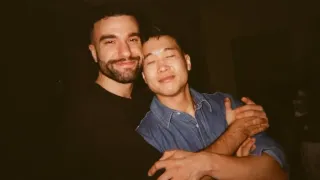October 11, 2015
Obama Gives Kanye West Some Tips for His Presidential Run
READ TIME: 2 MIN.
SAN FRANCISCO -- If you're going to run for president, Kanye West, you might as well listen to someone who's been there and done that.
"I do have some advice for him," President Barack Obama said during a West Coast fundraiser featuring an appearance by the rapper. "Just some stuff that I've picked up on the way."
When West appeared on the MTV Video Music Awards last month, he announced that he would run for president in 2020.
Obama's Tip No. 1 could have been aimed at reality TV star turned presidential candidate Donald Trump - and maybe a few others in the crowded GOP field.
"First of all, you've got to spend a lot of time dealing with some strange characters who behave like they're on a reality TV show," Obama said. "So you've just to be cool with that."
Tip No. 2 referenced West's fifth studio album. "Saying that you have a 'Beautiful Dark Twisted Fantasy' - that's what's known as 'off-message' in politics," Obama said. "You can't say something like that. There are a lot of people who have lost their congressional seats saying things like that."
Tip No. 3 hit the Chicago-raised West close to home. "Do you really think that this country is going to elect a black guy from the South Side of Chicago with a funny name to be president of the United States?" Obama asked. "That is crazy. That's cray!"
Obama, aka POTUS, also joked that West has his own nickname for the person in the White House - Peezy (that's someone who is really, really cool).
West also is thinking about running for speaker of the House, Obama cracked.
"Couldn't get any stranger," he said.






